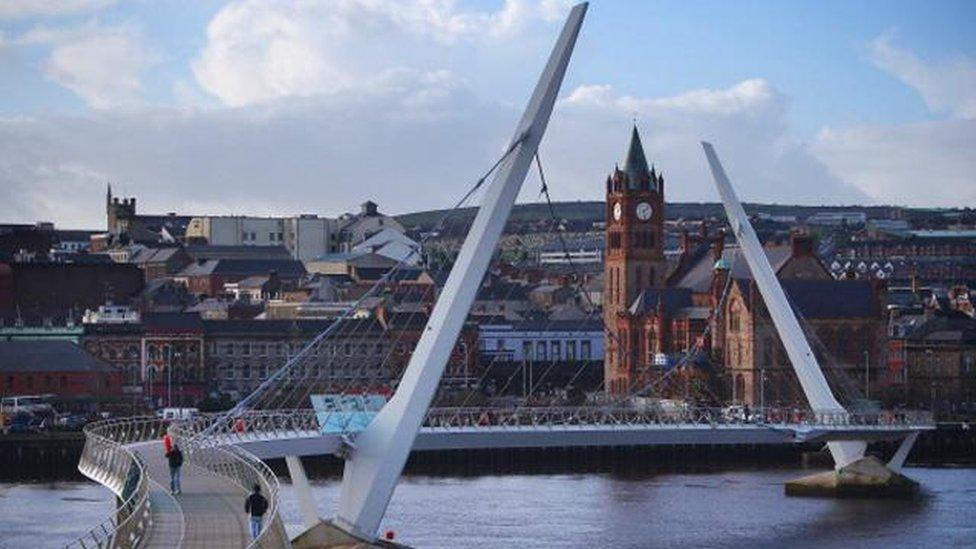Coronavirus: NI circuit breaker 'only viable' with Treasury support
- Published
- comments
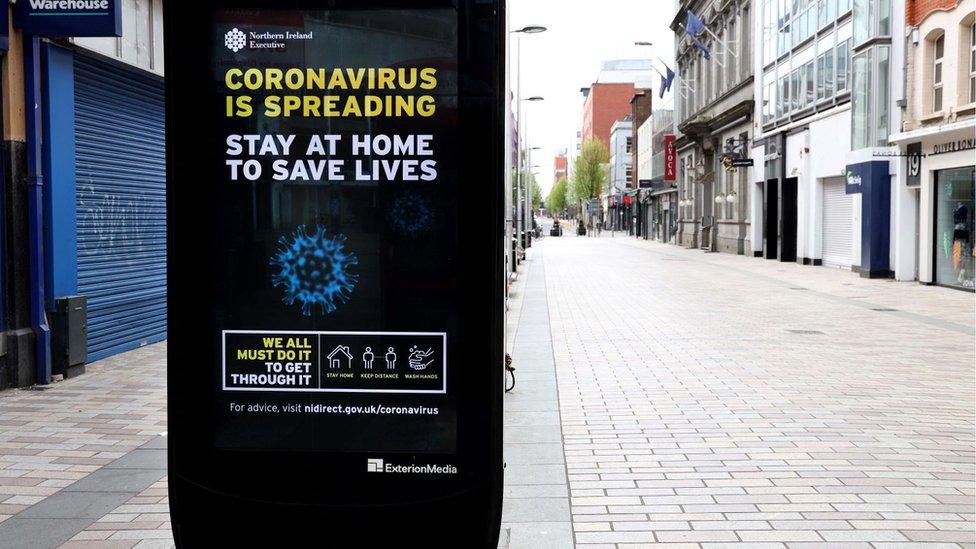
Imposing a circuit-breaker lockdown will only be viable if extra financial support is provided from Westminster, Diane Dodds has said.
The executive has not ruled out bringing in the move in NI to coincide with the half-term holiday for schools.
Mrs Dodds, Stormont's economy minister, said attention needed to be paid to the impact it would have on jobs.
Ministers will meet on Thursday to discuss imposing more restrictions to curb the spread of Covid-19.
There is speculation localised measures could be introduced in other parts of NI where cases are high, such as Newry and Mourne.
A circuit breaker is a lockdown for a short period of time, possibly two weeks, to slow the spread of the virus.
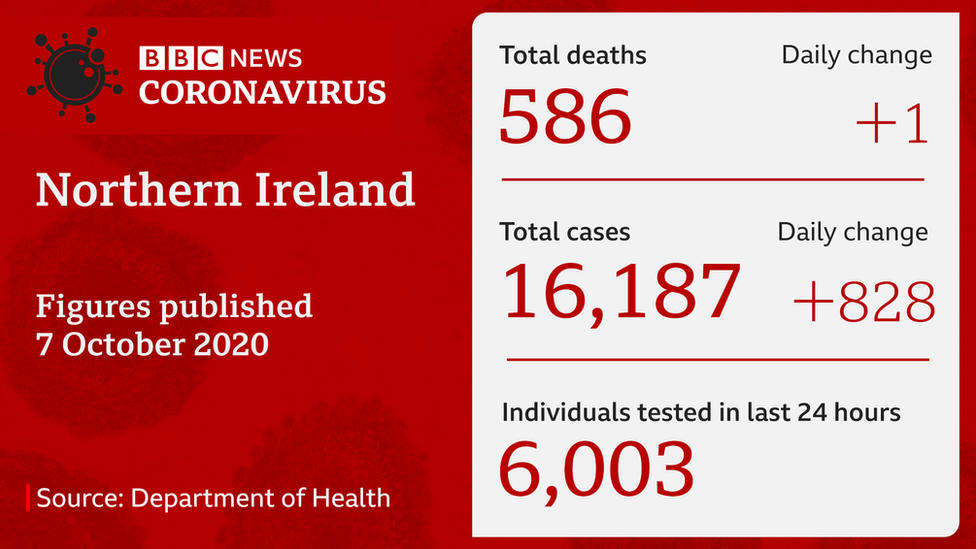
There were 828 new cases reported on Wednesday in the Department of Health's daily update for the previous 24 hours, with one further death confirmed.
To date there have been 16,187 confirmed cases of the virus in Northern Ireland.
London must 'step up'
Mrs Dodds said she welcomed the interventions from the British government to aid the economy during the first wave of the pandemic, but that it was no longer enough.
"We need to see our national government in London step up and offer help across the United Kingdom to make sure unemployment does not increase and that we are supporting jobs and people through this," she told BBC Radio Ulster's Good Morning Ulster programme.
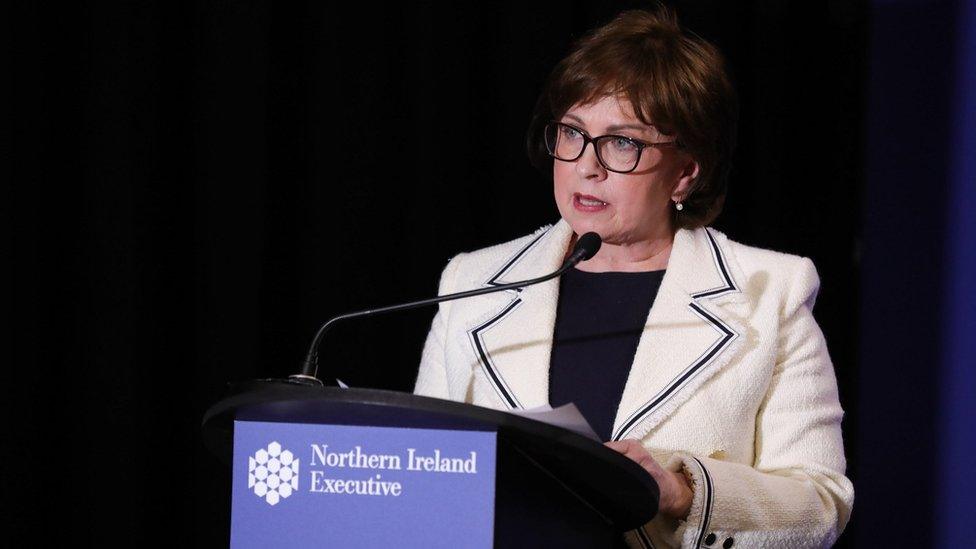
Economy Minister Diane Dodds says another lockdown would remove any lingering hopes businesses have of economic recovery
She insisted that the government's furlough scheme, due to end on 31 October, needs to be extended to stave off job losses in Northern Ireland.
The minister also said any further restrictions imposed must be "proportionate" and be backed up by public health advice, but that she would not pre-empt any discussions ahead of Thursday's executive meeting.
"I'm perfectly at one with the fact that when it comes to health and the economy, we need to have a balanced view of where we are," she added.
'Substantive task' to replace jobs
The head of the jobs creation body Invest NI has described the prospect of 100,000 workers here losing their jobs as "terrifying".
Kevin Holland said it would be a "substantive task" to replace job losses on such a scale.
He has been giving evidence to Stormont's Economy Committee.
Mr Holland said prior to the coronavirus pandemic, Invest NI had planned to create up to 30,000 jobs over a three to four year period and highlighted the aerospace sector as one area that could experience difficulties in the next two to three years.
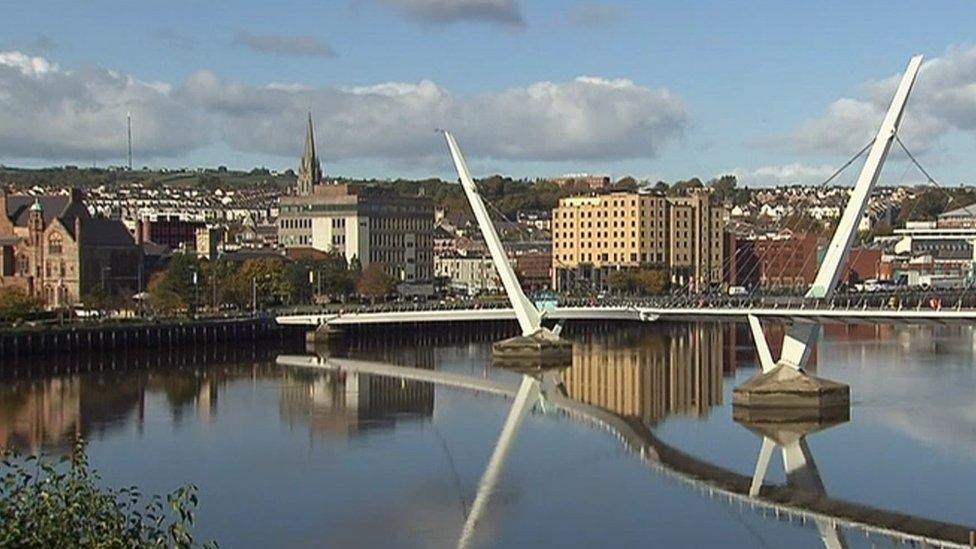
The north west has been under stricter public health measures since Monday
Meanwhile, Finance Minister Conor Murphy has announced a grant scheme to help the north west's hospitality industry.
Pubs, restaurants and hotels in the Derry City and Strabane council area have been operating under tighter coronavirus restrictions since Monday.
The scheme will see small businesses receive £800 for every two weeks they are closed, while larger businesses will receive £1,200 every two weeks.
The BBC understands Mr Murphy's proposal was approved by urgent procedure for sign-off from the first and deputy first ministers.
The minister said the scheme was more generous than similar support packages that had been offered in Great Britain and the Republic of Ireland.
But SDLP leader and Foyle MP Colum Eastwood said that "small grants won't cut it", as he called for a wider support package.
Allow X content?
This article contains content provided by X. We ask for your permission before anything is loaded, as they may be using cookies and other technologies. You may want to read X’s cookie policy, external and privacy policy, external before accepting. To view this content choose ‘accept and continue’.

Last week, businesses leaders in the north west said there were serious concerns about the impact of the new measures on the hospitality industry in the region.
They were introduced to help curb the surge in coronavirus cases in the region over recent weeks.
The council area has the highest rate of cases per 100,000 in NI.
There have been 1,813 confirmed cases in the Derry and Strabane council area since March - 876 diagnosed in the past seven days.
- Published6 October 2020

- Published6 October 2020

- Published1 October 2020
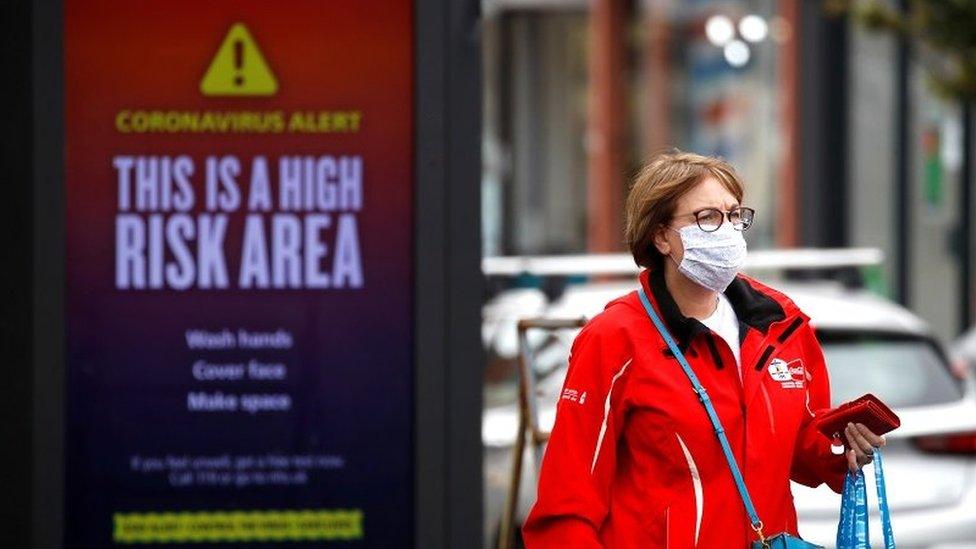
- Published1 October 2020
